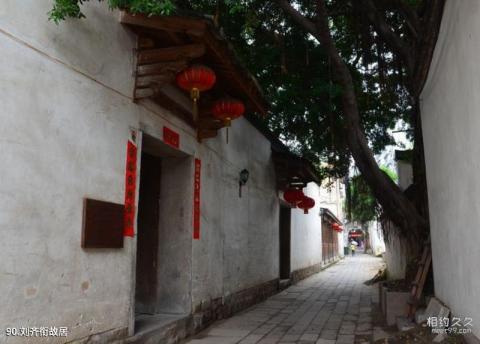
Introduction to the former residence of Liu Qixian: It is located at Nos. 14, 16, 18 and 20 on the north side of Gong Lane. It is a Qing Dynasty building. It faces south and has three main buildings and four adjacent buildings. The total construction area is 4141 square meters. It is now used as a Boyi Hall , divided into two parts: the Ancient Ceramics Hall and the Elegant Music Hall, displaying ceramic exhibits from the Western Zhou Dynasty to the late Qing Dynasty, as well as more than a hundred pieces of musical instruments from ancient and modern times, both at home and abroad.
Liu Qixian (1815-1877), courtesy name Benrui, also known as Binghuai and Bingru, was the eldest son-in-law of Lin Zexu, the second brother of Liu Qiqu, and the early founder of the "Dianguang Liu" industry, the richest man in Fuzhou. He lost his parents when he was young and was adopted by his uncle, Liu Jiazhen, known as "Liu Wanwan". He was smart, studious and extremely talented, and was deeply loved by Lin Zexu. On January 13, the 18th year of Daoguang's reign (1838), he married Lin Chentan, the eldest daughter of Lin Zexu. Three years later (1841), he and his brother Liu Qiqu became "two Jinshi brothers", which caused a sensation in Fuzhou. Later, he successively served as the head of the Ministry of Household Affairs, the prefect of De'an in Hubei, the governor of Shaanxi's grain road, the acting chief envoy and the general grain station, and the inspector-general of Zhejiang, the chief envoy of Henan, and the governor of Henan. During his tenure, he severely punished the rich, tried hard to change corruption, cared about the sufferings of the people, lightened the burden on the people, reclaimed wasteland, valued school education, and was quite popular in politics. In the third year of Guangxu's reign (1877), he became ill due to overwork and died in Kaifeng at the age of 63. He was later awarded the title of Doctor Ronglu. His mausoleum is located in Snake Mountain in Fuzhou National Forest Park today.
